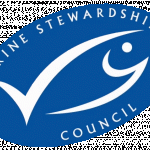Guilt
Almost every hour I receive some new piece of information that I want to write about on this blog. And yet, as you'll notice, the posts are spotty. The truth is, there is simply too much to criticize. Just consider the oceans this week.
The IWC met to discuss whether to reopen commercial whaling, which, in terms of ethics, is a return to the Middle Ages. Reporters are still calling Daniel Pauly to get him to address the debate (there is no debate) that whales eat all of our seafood (of course they don't; we do). Apparently, the IWC did not reach an agreement so things remain the same.…
A new study suggests collective guilt can inspire action, but only if people feel reasonably hopeful that things can get better. The study, based on questionnaires to ~150 undergraduate students, also found that guilt was a more effective emotion in encouraging mitigation behavior than anxiety. The article is titled Collective guilt mediates the effect of beliefs about global warming on willingness to engage in mitigation behavior and is in press at the Journal of Environmental Psychology.
Remember when food was just food? I don't. But I try to imagine it sometimes. I grew up in the throes of fast food, Halloween candy, and plates of bacon at breakfast buffets only to learn that I was just another victim of the food processing industry. Food issues are fascinating if for no other reason that they instill a constant sense of humility.
It took me traveling to South America to realize that popcorn could be made on a stove rather than in a moist microwaveable package. It's all very embarrassing.
But I am a human and his highly engineered crappy food is designed to appeal to…
Oliver Morton wrote a delightful book all about photosynthesis called Eating the Sun: How Plants Power the Planet, which I reviewed earlier this year for Search Magazine (R.I.P.) under the title "A Song for the Heartless". One of my favorite passages in the book beautifully explains the difference between art and science:
Discoveries feel determined. They are there to be made, and if one person doesn't, another will. This doesn't lessen the achievement; indeed it can give it spice. The thought that 'this is the way the world is--and I am the first to see it as such' is an intoxicating…
It's no secret: I voted for Obama. I did a lot more than that. I called the 'Impeach Obama' bluff. I begged him to give up fish, although I don't think he has yet.
I guess giving up seafood can wait. This month, President Obama gave me a harder pill to swallow. As many of you know, the Obama administration announced this month we could expect no additional marine reserves. California is still pushing their reserve designations with their MPAs work campaign, even if recreational fishers are unhappy. Others are rallying support for a National Ocean Policy.
Now I know Obama is a man of…
A classically held anthropological view is that "shame results from a public exposure of some impropriety or shortcoming whereas guilt results from more private events."
I concur with the anthropological notion that shame is the more public emotion (and also, that shame is likely a more primitive emotion that served adaptive functions in early developmental stages) and that is the definition that I will adhere to on this blog. In other words, the shame I will refer to is closely related to embarrassment (which distinctly depends on social disapproval, although embarrassment is often related…
In NewScientist today, there is a little article that describes the different types of carbon offsets you can purchase. It's not too informative and I much prefer articles with a little more of a critical eye, such as this 2007 piece in BusinessWeek or this piece from the NYTimes blog on confusing carbon labels. (By the way, be sure to check out the UK offset parody Cheat Neutral).
Truth is, I have been bored by carbon offsets for ages (ever since I did my master's related to carbon trading--back in 2002, when they were still calling it 'carbon sequestration' and the concept had not yet…
A lot of people who don't want to feel guilty about eating seafood will look for the MSC logo. The MSC (or Marine Stewardship Council) supposedly certifies sustainable fisheries. They aim to reward good fisheries management by providing access to niche markets (the same markets concerned with their bread slicers) and the lure of higher profits (although this hasn't seemed to happen so far). Four recent events reveal the fishiness of MSC-certification -- a process many fisheries scientists supported at its inception but now doubt.
1) Certified wasted fish
Daniel Pauly and I have an article…
Not to beat a dead horse (although that horse could possibly help alleviate the demand for tuna) but I wanted to clarify some of the arguments against eating seafood or, rather, in favor of marine life. Here I address some specific (and broader) questions in response to my recent posts.
Isn't there sustainably harvested seafood out there we can eat?
In theory, we should be able to harvest seafood sustainably. I am not ruling out this possibility, although most scientists are very hard pressed to name several truly sustainably managed fisheries (note on the rule of sustainability: things…
Because food issues are "one of the most interesting social movements afoot right now", I thought I would continue the discussion over whether we should give up eating seafood just a bit longer and point out the recent post at Animal Planet asking if we should boycott seafood altogether? Why is giving up seafood so unpalatable (other than for the obvious reason that some people find it delicious)? I am sure some people would find manatee meat tasty, too. Does that mean we should eat them to extinction?
Whether we should continue eating seafood is a hot topic this week. While I was arguing (again) that we should give up eating seafood, Mark Bittman at the New York Times had a nice piece on how seafood has changed through his lifetime and how the days of "see it/eat it" are over. However, he stops short of a strong stance and tries to justify his continued seafood consumption:
One could argue, as I sometimes do (mostly to myself), that one shouldn't eat fish at all, fearing that if fish lovers begin consuming those few remaining species that are not in trouble -- sardines, mackerel, squid…
Today (which, as happenstance would have it, also happens to be World Ocean Day) the environmental and conservation news site Mongabay.com ran an interview with me on why we should stop eating seafood. I think that if we can get people to feel about fish the way they feel about birds it should be easier to save them...
In some ways, [fish] are not that different from birds and, as anyone who has ever been to England knows, there is no shortage of sentiment for avian species. Fish often travel in flocks and flash beautiful colors. Like the albatross, tunas cover remarkable migratory distances…
A blogpost over at GOOD magazine* reviews a new book on veganism, applauds the book for its flexible approach, and says we should "give up trying to guilt people into not eating any meat." The post mentions the environmental impacts of meat, which are indeed significant (according the the UN, rearing cattle produces more greenhouse gases than driving cars), but does not venture much further in the realm of why there is a guilt campaign around meat eating (which, I would argue, has been a fairly weak campaign -- the potential for gruesomeness hardly fulfilled at all).
If it is not yet clear…
I wanted to share renowned fisheries biologist (and my supervisor*) Daniel Pauly's lecture at the Smithsonian Natural History Museum last week, which kicked off the International Marine Conservation Congress. I particularly enjoyed his ending, which discussed the potential operating systems for the interface between humanity and Planet Earth...
*But not for too much longer... I submitted my dissertation on Friday and look forward now to blogging with greater frequency.
The New York Times ran a great little profile on a great little video released in 2007 called The Story of Stuff. This 20-minute film created by former Greenpeace employee Annie Leonard has made its way around the globe and into many classrooms, where its animation and succinctness encourages discussion. And guilt.
According to the New York Times article, Rafael de la Torre Batker, age 9, was riding in the car one day with his parents in Tacoma, Wash., and wondered whether it would be bad for the planet if he got a new set of Legos.
Some parents are not pleased with the film, though. One…
I cannot embed the official video but here's another version:
Here are Beck's lyrics:
I feel uptight when I walk in the city
I feel so cold when I'm at home
Feels like everything's starting to hit me
I lost bed ten minutes ago
Modern guilt I'm staring at nothing
Modern guilt I'm under lock and key
It's not what I have changed,
Turning into convention
Don't know what I've done but I feel ashamed
Standing outside the glass room sidewalk
These people talk about impossible things
And I'm falling down the conversations
Another palm beats into you
Modern guilt is all in our hands
Modern guilt…
...it was the one trick my mother always had up her sleeve, that way she had of making me feel guilty. She made no bones about it, either. "You can't help it," she told me once. "Slipped it into your baby food. Don't worry, though," she added, smiling like a Cheshire cat. "A healthy dose of guilt never hurt anybody. It's what civilization was built on, guilt. A highly underrated emotion.
President Barack Obama in Dreams from My Father.
Jared Flesher discussed this week A Decline in 'Green Guilt' at the NYTimes Green Inc. Blog. Some groups attribute the decline to the fact that Americans are doing more for the environment (more people are carpooling and planting gardens, especially with the economy in its present state) but Flesher gets to what is likely the true culprit: the environment takes the backseat psychologically in times of economic downturn. According to his post:
A recent Gallup poll, for example, found that, for the first time in 25 years, a majority of Americans think economic growth should be given priority…
Call it religious, call it effective (or ineffective), call it trite. The fact is, there is a lot of guilt-laden language in the conservation movement. Because this will help lay the foundation for future discussions, I wanted to present some examples here.
Guilt-free flying and guilt-free vacations are now possible with the emerging market for eco-lodges and carbon offsets:
Drive a hummer guilt-free with carbon credits:
Guilt-free tropical vacations:
Guilt-free fish:
Guilt-free intimates:
Guilt-free organic vodka:
There are also guilt-free SUVs in many different varieties.
And a…




